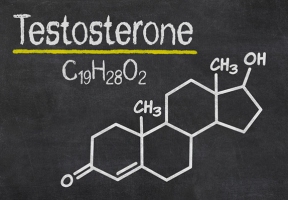By: Stephanie Rubino, ND
Edited by Lawndale Bilingual News
 We frequently discuss hormone balance in women, but what about men? Testosterone plays a crucial role in these conversations and deserves more attention. As the primary male hormone, testosterone controls male sexual characteristics, muscle development, and libido. During adolescence and early adulthood, testosterone levels are at their highest. Deepening voices, growth spurts, and maturing reproductive organs are signs of the effects of testosterone during this time. Testosterone is also needed for muscle mass and strength, bone density, and red blood cell production. Testing testosterone levels is essential in assessing hormone status, and additional tests may be needed to diagnose a condition. Testosterone therapy is available; however, nutrition, lifestyle, and supplements can also provide benefits. Consider these strategies to support testosterone production as you age:
We frequently discuss hormone balance in women, but what about men? Testosterone plays a crucial role in these conversations and deserves more attention. As the primary male hormone, testosterone controls male sexual characteristics, muscle development, and libido. During adolescence and early adulthood, testosterone levels are at their highest. Deepening voices, growth spurts, and maturing reproductive organs are signs of the effects of testosterone during this time. Testosterone is also needed for muscle mass and strength, bone density, and red blood cell production. Testing testosterone levels is essential in assessing hormone status, and additional tests may be needed to diagnose a condition. Testosterone therapy is available; however, nutrition, lifestyle, and supplements can also provide benefits. Consider these strategies to support testosterone production as you age:
Maintain a Balanced Diet
Fat is a vital macronutrient when it comes to hormone production and balance. Following a low-fat diet is not the best nutritional advice and has been linked to decreased testosterone production in men. Omega-3 fatty acids may increase free testosterone levels and support testicular function. Balancing healthy fats with complex carbohydrates and a moderate-to-high protein intake is also beneficial.
Incorporate the Right Types of Exercises
Here’s another reason to stay active: testosterone levels are linked with physical activity. In an eight-week study, participants who performed high-intensity interval training (HIIT) significantly increased testosterone levels. Different types of exercise are important for health, but HIIT and resistance training exercises are best for testosterone support.
Use Testosterone-Supporting Nutrients and Botanicals
Zinc is needed for more than immune health. This essential mineral supports the male reproductive system and is involved in sperm and hormone production. A zinc deficiency is associated with low testosterone levels. However, levels can be improved with zinc supplementation.
Vitamin D for testosterone? Correct! Testosterone is produced in the testes, where Leydig cells with vitamin D receptors are involved. Lower testosterone concentrations have been observed in men with vitamin D deficiency. Vitamin D supplements can prevent vitamin D deficiency and may also improve testosterone levels. When supplementing with vitamin D, it is essential to include magnesium, as it activates vitamin D.
Dr. Stephanie Rubino,ND, operates a general naturopathic practice with a focus on women’s health, and digestive health. She has a special interest in educating the public and other health professionals about a range of health topics and natural health product issues.










